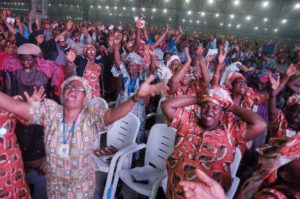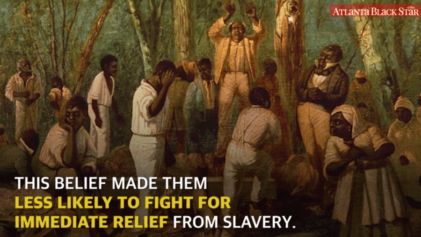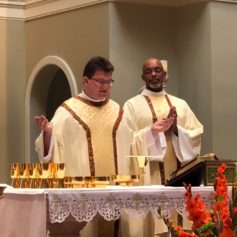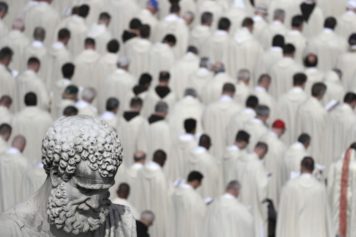Christianity is the most popular religion in the world, and the center of gravity for the faithful is in Africa.
As The Economist recently reported, Black people are the most devout Christians. Although Europe remains the continent with the largest number of Christians, church attendance in Europe is falling due to “creeping secularism,” an emphasis on individual spirituality over organized religion among younger people, and affluence.
The Economist report makes the point that in richer countries, such as those among Western Europe, citizens attend services less frequently. This makes the U.S., with its 58 percent church attendance among self-identifying Christians, somewhat of an outlier.
“The odds that an individual will attend church are 15 percentage points higher in the world’s 29 most unequal countries than they are in the most equal ones,” The Economist reported. “And people on the lower rungs of their own country’s economic ladder tend to be more observant than those at the top.”
In America, which is a wealthy nation with unusual inequality, African-Americans and Latino immigrants are poorer than the national average, and very devout.
While a mere 9 percent of the 100 million people living in Africa were Christians in 1910, 55 percent of the billion people living in Africa today are Christian, according to the Centre for the Study of Global Christianity at Gordon-Conwell Theological Seminary. Of five sub-Saharan nations–Ghana, Nigeria, Rwanda, South Africa and Zimbabwe—90 percent of self-identifying Christians reportedly attend church regularly, meaning there could be as many as 469 million churchgoers in Africa. To put that in perspective, 335 million people who attend church live in Latin America, which is 60 percent more than in Europe, according to The Economist.
It is instructive to examine why the formerly colonized—for our purposes, people of African descent—are the most religious Christians. Why is it that the people who are the most entrenched in poverty and suffering the most, whether Black people in Africa or Black people in America, thump their Bibles the hardest?
Surely, one can understand the role of liberation theology, of social justice Christianity, the notion of Jesus the Black freedom fighter who rights wrongs and helps Black people as they struggle through hard times.
But what happens when the colonization of a people is mental? Missionaries came to Africa to “soften up” the local populations, making them pliable and ready for white supremacy, the exploitation of their land, resources and bodies inherent in colonization. They were given, and gladly clung onto, the least empowering narratives–of God as a white man and a white master, and the notion of blind faith and forgiveness, and enduring suffering in life so that you go to Heaven once you die. But what about having Heaven on Earth? What of the concept of accumulating wealth so as to provide a secure future for one’s children and successive generations? We are not talking about prosperity gospel, which is simply pimping with a collar and cross, but rather a demand for basic human rights, of economic security, dignity, freedom, and justice.

A girl carrying a cross arrives to celebrate mass at Saint Charles Lwanga church in Bangui, CAR.
AFP PHOTO / FRED DUFOUR (Photo credit should read FRED DUFOUR/AFP/Getty Images)
In other words, if our devoutness is related to our continued exploitation and economic subjugation, then what benefits have we derived from our faith, when Christians in the advanced world are not made to sacrifice their wealth for their faith? And that’s wealth they stole from Africans, by the way, with compounded interest.
The key for Black people is to channel their faith—whatever their religion, or lack thereof– in a manner that speaks to their condition, their culture and their values. Certainly, Kwanzaa is an effort to make Black spirituality real, regardless of one’s religion, in promoting strong values, perpetuating institution building, and bringing about positive outcomes in the community.
“I’m saying that you are closer to God the further you get away from organized religions that are all handmaidens of conquest,” Dr. John Henrik Clarke once said. “And these belief systems that had their origins in Africa–all of them, and there is no exception–turned on African people. Everything that was brought into this continent–everything, every idea, every so called religion–was meant to dominate and to control. Every element that was put into the making of every major religion started in Africa. Why is it you are so naïve, you let people redress something you invented, send it back to you and enslave you through it?”



